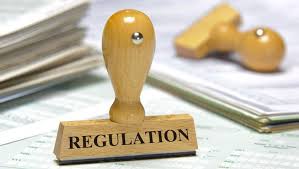Forex Regulations and Tax Havens

First, the points below are important:
- Forex is a decentralized market in which it operates worldwide. Each country has its own regulations.
- Many brokers have their main offices in tax havens or in countries with low taxation. This fact does not mean that the company is not reliable and / or legitimate, but you must exercise caution and that at least it is regulated and registered with some body that supervises its activity and acts as a mediator in the event of a potential conflict.
- Part of your task is to investigate the companies you plan to trust with your money
Given the extremely high volume of transactions that occur on a daily basis in Forex – some estimate it above two trillion dollars – and the enormous number of brokers that reside and operate around the world, it becomes increasingly difficult for A central organization impose definitive regulations that are valid and acceptable to the majority of the participants.
For this and other reasons, there is no central regulatory body for this business (Forex is an OTC (Over The Counter) market, that is, it is not centrally regulated).
Think for a moment about all that money that moves from day to day; there are no single central authority that someone can lean on. There is no set of rules on a global scale that any broker has to follow to operate in this market. There are only the regulations established by each country individually, where the degree of restrictions varies.
The case of the United States
In the United States, the regulatory entity for any activity related to the foreign exchange market is the CFTC (Commodity Futures Trading Commission). We invite you to explore their page, especially the section on Forex warnings and fraud. It contains general but useful information that can help you distinguish between responsible companies and fraudulent companies that only want to keep your money.
A Forex broker to operate in the United States should be registered as a Futures Commission Merchant (FCM) with the CFTC, and in addition, should be a member of the NFA (National Futures Association). Our recommendation is to stay away from those unregulated companies if you are going to operate from the USA.
Tax Havens and the importance of knowing where your Forex Broker operates;
For the reasons explained above, it is of utmost importance, when you are considering investing your money in a particular broker, to take into account in which country your main headquarters is. Knowing that your broker operates in a country such as Switzerland, the United States or the European Union can generally be seen as a kind of guarantee – not a final one, but one worth noting – of legislation with a solid record, which means that your money has less risk of “disappearing” suddenly.
Information about each broker should be present on the company’s website, and if not, you should be able to contact their support staff via email or online chat and ask them for definitive evidence. If for some reason you cannot access this information, or they do not give it to you, you will have a strong argument for not risking your money with them.
The fact of residing the headquarters in a tax haven does not mean that the company is not reliable and / or legitimate. In these cases, the least you can do to protect your investment is to do a little research on the web, looking for the name of the company and the opinions that other users have to say about them.
